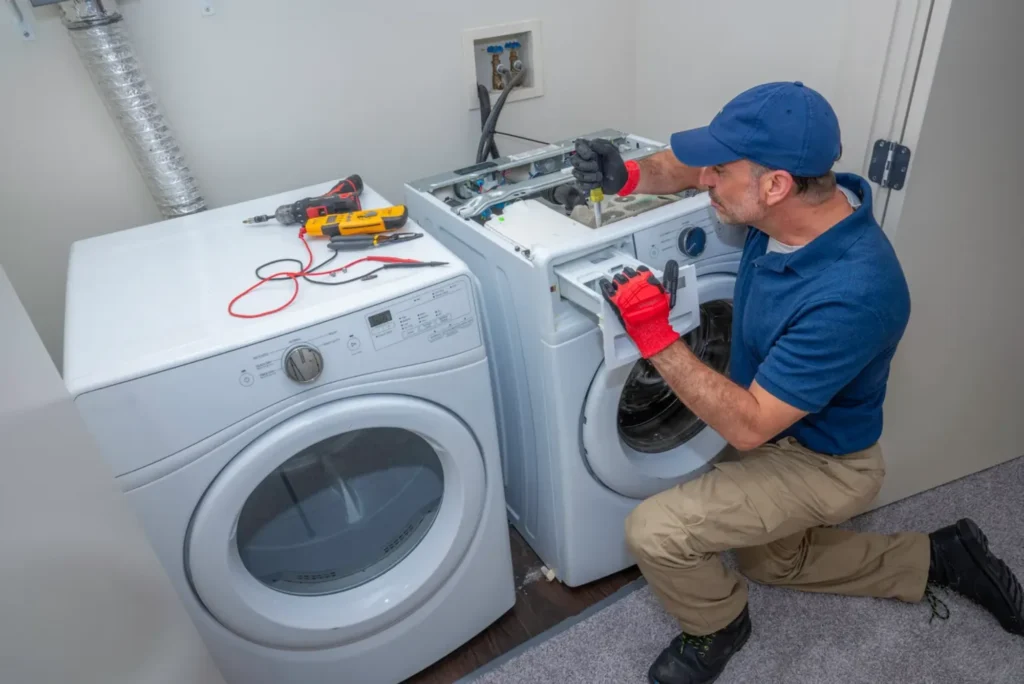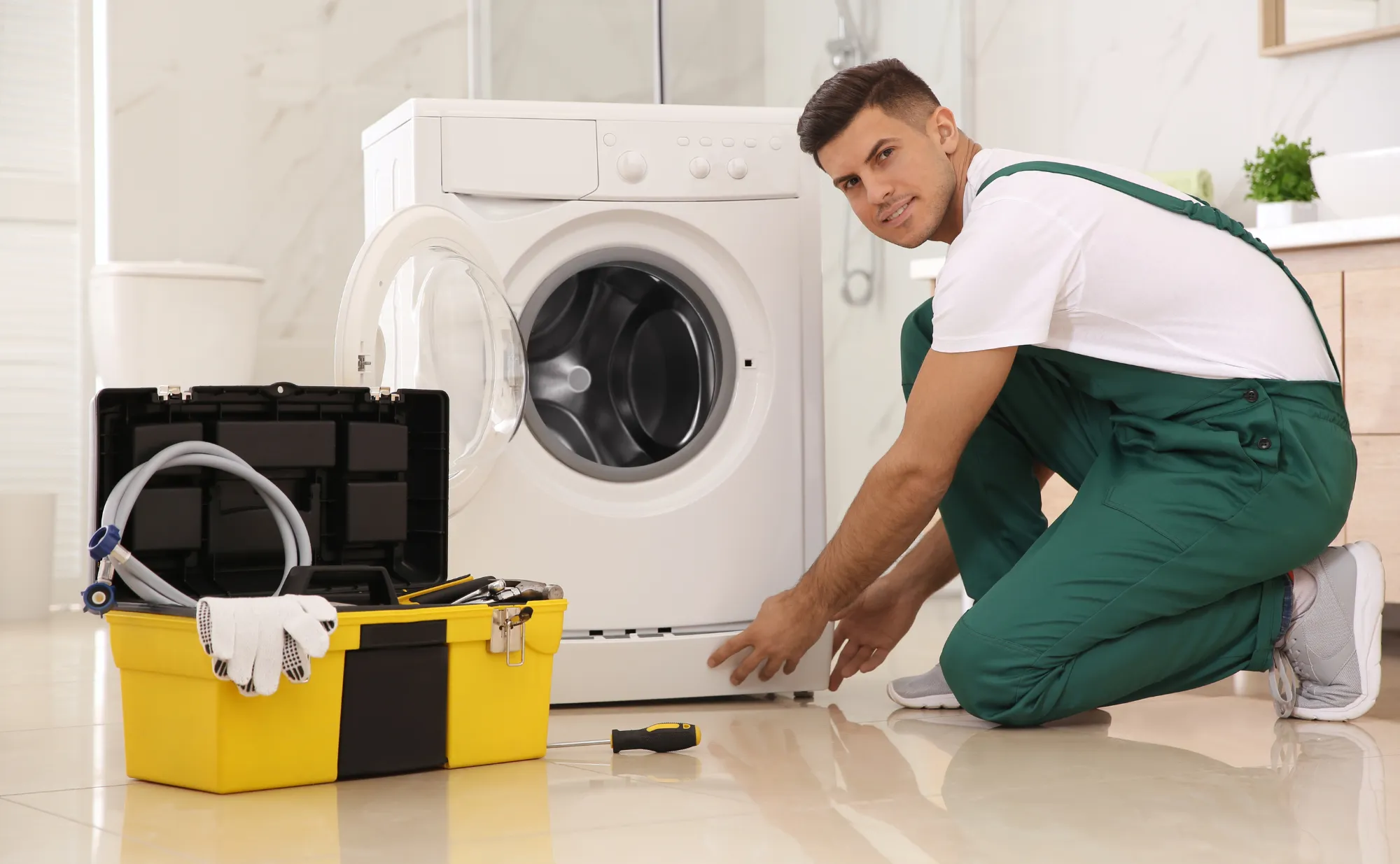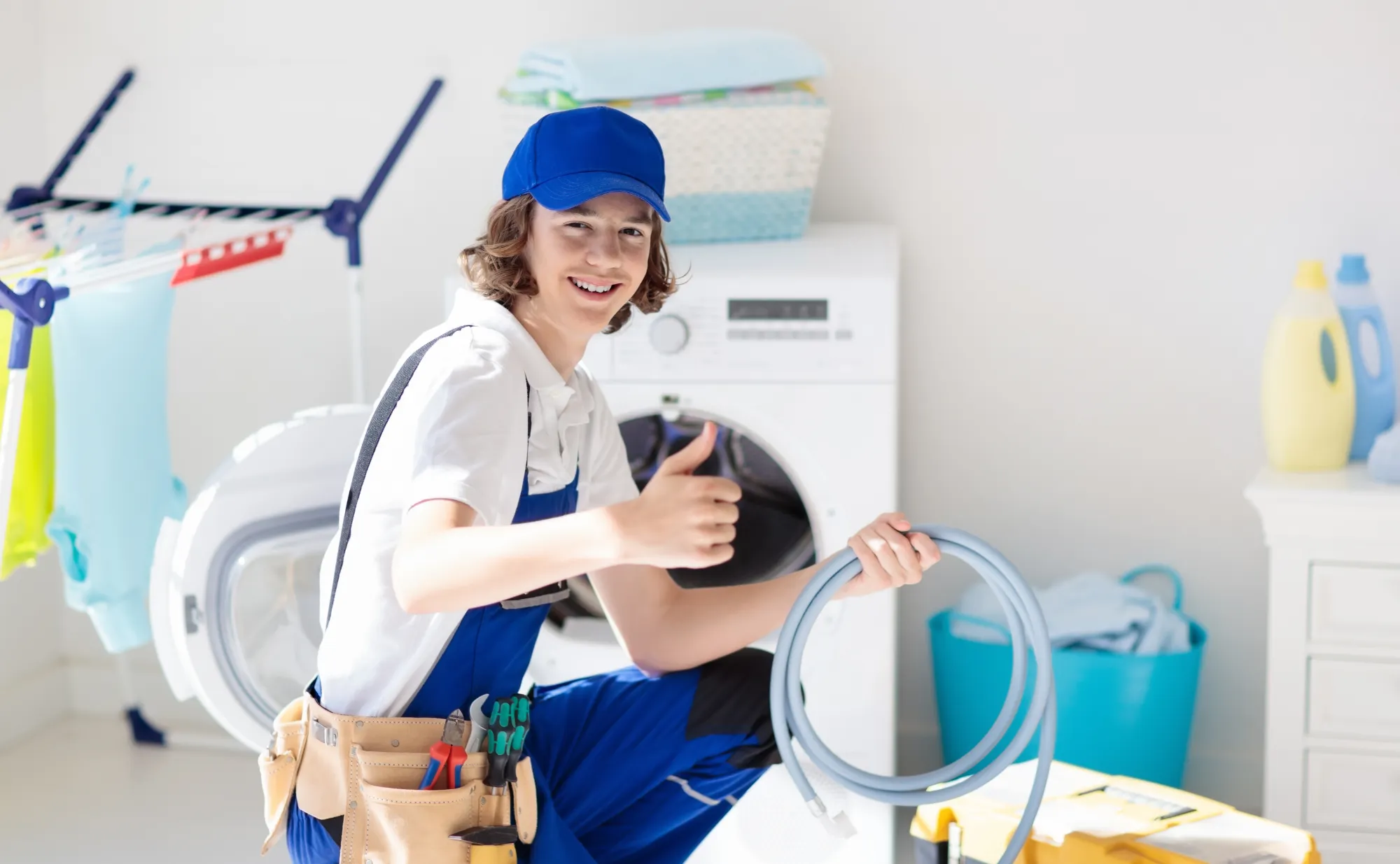Laundry appliances hold a pivotal role in our daily lives, and when they falter, the debate between repair and replacement begins. Making the right choice involves weighing several key considerations.

Signs Your Washing Machine Needs Attention
Before deciding, identify signs of distress. Unusual noises, water leaks, or incomplete cycles are red flags demanding your attention. Understanding these indicators can guide your decision.
Your washing machine is an essential household appliance, ensuring that your clothes remain clean and fresh. However, like all machines, it can develop issues over time. Recognizing the signs that your washing machine needs attention can help you avoid costly repairs and ensure it continues to function efficiently. Here are some common indicators that your washing machine may need maintenance or repair:
1. Unusual Noises
If your washing machine starts making strange sounds such as banging, grinding, or squeaking, it could be a sign of a mechanical issue. These noises often indicate problems with the drum bearings, motor, or other internal components.
2. Leaking Water
Water pooling around your washing machine is a clear sign that something is wrong. Leaks can be caused by issues such as a faulty door seal, a cracked hose, or a problem with the water inlet valve. Addressing leaks promptly can prevent water damage to your home.
3. Excessive Vibration
While some vibration is normal, excessive shaking or moving during the spin cycle can indicate an imbalance. This could be due to unevenly distributed laundry, worn-out shock absorbers, or a misaligned drum. Consistent vibration can cause damage to the machine and surrounding areas.
4. Failure to Drain or Spin
If your washing machine is not draining properly or fails to spin, it could be due to a clogged drain pump, a faulty lid switch, or an issue with the drive belt. These problems can lead to wet clothes and incomplete wash cycles.
5. Foul Odors
Persistent bad smells coming from your washing machine can indicate mold or mildew buildup. This is often caused by using too much detergent, not cleaning the machine regularly, or leaving the door closed between washes. Regular cleaning and maintenance can help prevent odors.
6. Error Codes
Modern washing machines often display error codes when something goes wrong. Refer to your machine’s manual to understand what the error codes mean. Ignoring these codes can lead to more significant issues down the line.
7. Longer Wash Cycles
If your washing machine takes longer than usual to complete a cycle, it may be struggling with water intake, heating issues, or problems with the control board. Prolonged cycles can waste energy and reduce the efficiency of your laundry routine.
8. Inadequate Cleaning
When clothes come out of the washing machine still dirty or with detergent residue, it could be due to a malfunctioning agitator, a clogged filter, or improper water levels. Ensuring all components are functioning correctly is essential for clean clothes.
9. Excessive Lint
Finding an unusual amount of lint on your clothes after washing can indicate a problem with the washing machine’s lint trap or filter. Regularly cleaning these parts can help maintain the machine’s efficiency.
Assessing the Age of Your Washing Machine
Age matters. Older machines may pose higher repair risks. We’ll explore the average lifespan of washing machines and how it influences the repair-or-replace dilemma.
Knowing the age of your washing machine can help you make informed decisions about maintenance, repairs, and potential replacement. Here’s a guide to help you determine the age of your washing machine:
- Check the Serial Number and Model Number
- The serial number and model number are usually found on a sticker or plate located on the back of the machine, inside the door, or on the control panel.
- The format of the serial number varies by manufacturer, but it often includes a date code.
- Consult the User Manual
- The user manual often contains information about the model and production year of your washing machine.
- If you don’t have the manual, you can usually find it on the manufacturer’s website by searching for the model number.
- Use Online Resources
- Many manufacturers provide online tools or databases to help decode the serial number and determine the age of the appliance.
- Websites like Appliance411 offer serial number lookup tools for various brands.
- Contact the Manufacturer
- If you’re unable to determine the age through the serial number or user manual, contacting the manufacturer directly can provide you with the information you need.
- Provide them with the serial number and model number for an accurate assessment.
- Inspect Physical Condition
- While not precise, examining the physical condition of your washing machine can give clues about its age. Older machines might show signs of wear and tear, rust, or outdated design features.
- Consider the Technological Features
- Washing machines have evolved significantly over the years. Features like digital displays, touch controls, and advanced washing cycles can indicate a more modern appliance.
- Conversely, mechanical dials and simpler designs often suggest an older machine.
Cost Analysis: Repair vs. Replacement
Financial considerations play a crucial role. We’ll break down the costs associated with repairs and compare them against the investment required for a brand-new machine.
DIY Fixes and When to Call Professionals
Explore simple fixes you can attempt on your own and know when it’s time to call in the experts. Sometimes, a quick DIY solution can save you from unnecessary expenses.
Environmental Considerations
Beyond your wallet, consider the environmental impact. We’ll discuss responsible disposal and sustainable options to minimize your ecological footprint.
Upgrading to Energy-Efficient Models
Explore the advantages of modern, energy-efficient washing machine repair. Weigh the long-term benefits and savings, both for your pocket and the environment.
Consulting with Appliance Repair Experts
Seeking professional advice is crucial. We’ll outline the benefits of consulting with experts and how AZ Repairing Dubai can guide you through the decision-making process.
Customer Testimonials
Gain insights from individuals who faced the same dilemma. Real-life experiences can provide valuable perspectives, showcasing the success stories of repairing or opting for a replacement.
Summarize the key takeaways and encourage readers to make an informed decision tailored to their unique circumstances. The right choice ensures efficient laundry days ahead.
Whether to repair or replace your washing machine depends on a variety of factors. By considering signs of distress, age, costs, and environmental impact, you can navigate this decision-making process. When in doubt, consulting with professionals, such as AZ Repairing Dubai, can provide the guidance needed for a smooth and informed choice.



